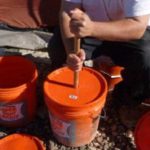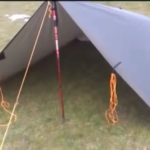Special consideration is necessary to meet the needs of the elderly and disabled along with making accommodations based on their physical and emotional condition. However, the basic principles of preparedness are the same. Access to food, water, shelter, medicine and safety are the primary things that you should address above all else. The only difference is that you will need to account for their particular requirements when developing your plans.
Understand Their Condition and Limitations
The first step in knowing how to prepare is to understand what issues and concerns need to be addressed. Having a good understanding of their condition, illness or physical limitations as well as treatment requirements will help you to create resources that will meet those needs. It will also help you to understand the role that you will have to play to ensure their well-being. This can be anything from ensuring they have dietary requirements met to helping them get from one place to another or accommodating them into your bug-out plan.
Accessibility
Making things accessible to the elderly and disabled is incredibly important, especially if they are alone. You may need to modify how you prepare and store food. You may need to place things at a lower level for easy reach or in rooms where they spend most of their time if they have mobility issues. Things as minor as opening a can of food, preparing a meal or having access to basic items may be a very difficult challenge, so you should take that into account as you help them to get ready for the unexpected.
Involve Them in the Planning
Perhaps the most important thing that you can do is to involve them into the planning process. They understand their condition, strengths and weaknesses better than anyone. They will know what they need from you and others as well as what they can manage on their own. Consider all of these things, and work especially hard in order to find ways to make life easier for them and yourself during a crisis.
Develop a Support System
Having a support network of people who can be trusted is invaluable in the best of circumstances, and exceptionally important when working with the elderly, infirm of those with mobility issues. This should include not only family, but friends and neighbors as well. This is especially true for those who live alone. This also gives everyone a chance to participate in the planning process and to know what to expect if an emergency situation ever occurs.
Many survival scenarios can be handled just fine even when trying to accommodate the elderly or disabled. The most important thing is that you plan, prepare and communicate intentions to everyone who may be involved. This way you will know they are well-cared for irrespective of the circumstances. This includes having plans for their medication, health care, transportation and what to do if you can not personally be involved in the situation. Take time now to really think through the steps that are necessary to ensure that the less able are in a position to survive and thrive as the rest of us.

















